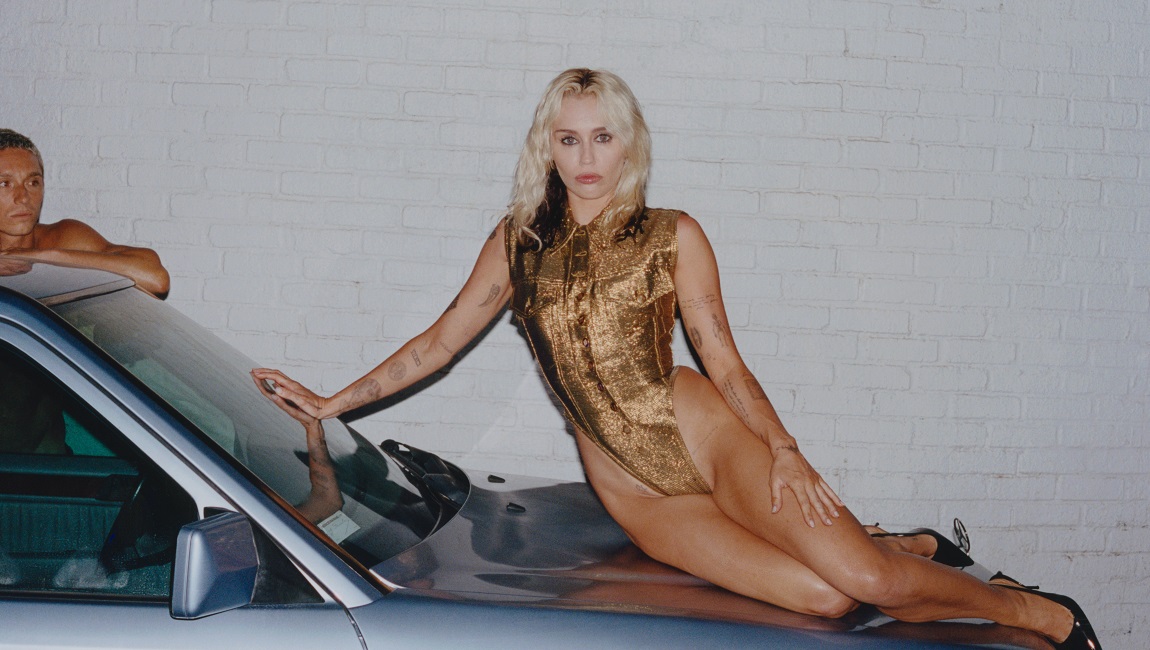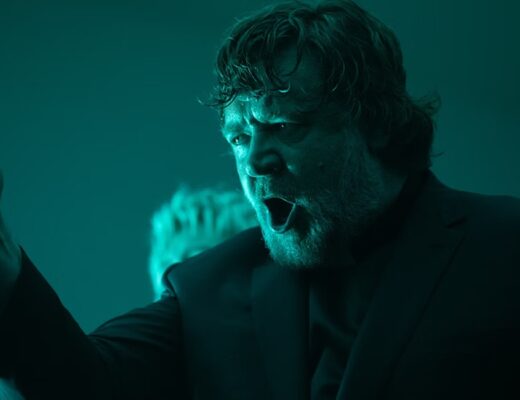The real story with Endless Summer Vacation might be that this is the album where pop’s forever fickle princess finally finds her sound. In truth, she kind of already did on 2017’s fantastic Younger Now, but either the tepid commercial and critical response or commitment to a holistic roots music out-of-step with her more radical impulses soon sent Miley careening in other different directions, first with a 2019 EP of resolutely contemporary hip-hop bangers, dance floor fillers, and power ballads (part of a subsequently aborted trilogy), and then with the classic rock pastiche of 2020’s Plastic Hearts, which wore its retrofetishism so transparently that Billy Idol, Joan Jett, and Stevie Nicks showed up for features. Miley has tended to have trouble getting all the constituent parts of her massive talent moving in concert, and while Plastic Hearts boasts some of the most accomplished and consistent writing on any of her albums (with pop fixers Andrew Watt, Mark Ronson, Ryan Tedder, Louis Bell, and Emile Haynie all in the credits), it’s also the least sonically adventurous effort since her Disney Channel days.
So Endless Summer Vacation is another reset in a career full of them. But it’s also the first Miley album that seems like it cracks the code of creating a coherent fusion between her most out-there psychedelic experiments (there are songs that could slot into the sprawl of 2015’s 90-minute Miley Cyrus & Her Dead Petz) and her commercial pop ambitions. Unfortunately, the work gone into thinking through the sonic identity of this project isn’t met at the other end by the writing. It’s also notable that while Endless Summer Vacation continues the trend of Miley teaming with a small army of industry-proven writers (after retaining almost sole credit for the lyrics on Younger Now), the personnel this time is largely different than it was on both Plastic Hearts and the She Is Coming EP. Two recurring names in particular from the credits here — Thomas Hull (AKA Kid Harpoon) and Tyler Johnson — are also best known as a pair for being the chief architects behind the last two Harry Styles albums, and there’s a similar vacuousness and posturing substituting for real personality that defines the lyrics to many of these new songs.
The major exception to that rule is “Flowers,” the lead single and opening track of ESV and its unassailable peak. Like few other popstars working, Miley (and her collaborators) can be counted on for an empirically perfect song every five years or so that represents the ideal synthesis of her genre ambitions during that era (see: “The Climb,” “7 Things,” “Malibu”), and “Flowers” adds to that tally: A chilled-out, slow burning neo-disco confection pitched right at a level of mature edification that deliberately betrays the raw heartache beneath its surface. Some have dinged the song as maudlin self-love, but the tame ordinariness of the imagery (“I can take myself dancing / I can hold my own hand”) is entirely the point, the simple pleasures of a woman rebuilding her confidence one comforting thought at a time — and the lightly perceptible change in intensity of Miley’s vocal sell that gradual transformation. Miley has proven a better vocalist than almost anyone in her bracket when she wants to be; it’s her instincts that are sometimes questionable. On “Flowers,” the reserved nature of the lyrics have her hold back that caterwauling she’s often prone to with her bigger pop moments — which is to say, she sings it as well as she does her ballads, but with the added buoyancy and tempo of a banger. That restraint is short-lived, though, as “Jaded” (produced by that menace of in-the-red mixing Greg Kurstin) favors a sky-scraping vocal that wrings out any character. More frustratingly, its lyrics don’t really justify the intensity: “I’m sorry that you’re jaded” is a pretty weak missive.
This album’s lyrics constantly drag down and prevent a generally grooveful set from selling itself with the charismatic personality of Miley at her best. “Rose Colored Lenses” rides a squelchy, psych-rock beat and fuzzed-out guitar licks like a more cleaned-up and accessible version of what she cooked up with the Flaming Lips a few reinventions back, while the free jazz-lite saxophone solo the song goes out on provides a nice touch of idiosyncrasy. But the repeated refrain of “We could stay like this forever / Lost in wonderland” is filler writing at its most obvious, and the attempts at more descriptive detail (“Somehow the bed sheets are dirty / Like sticky-sweet lemonade”) feel generated by the same Mad Lib logic as Styles’ “Music for a Sushi Restaurant” and “Watermelon Sugar.” The country-ish ballad “Thousand Miles” (with a harmonizing Brandi Carlile) fares worse, alighting on the genuine word salad chorus of “I’m out of my mind but still I’m holding on like a rolling stone / A thousand miles from anywhere.” There’s no good reason for this: In the Backyard Sessions concert movie that she released to Disney+ the same day as this album, Miley proves that the original lyrics for “Thousand Miles” weren’t nearly so convoluted. In a clip before her performance, she explains that the 2016 version (then called “Happy Girl”) was written in response to a friend’s suicide, and sings a verse a capella: ”There was a friend of mine, her name was Darlene but all of us called her Becky. I don’t know why, I knew she was hurting. But I never thought I’d wake up to that call.”
Miley rarely allows herself that level of vulnerability and directness here, seemingly out of a concern that getting too personal might make it harder for others to connect with her songs (she always tends to pivot when there’s evidence of some receding cultural attention). And there’s nothing wrong with writing for the cheap seats, per se — she largely did that on Plastic Hearts — but the effort to court that audience here tends to vacillate between painfully played-out cliché (“Wildcard”) and genuinely head-scratching strangeness (“Muddy Feet”). Occasionally, the music is strong enough to overcome its lyrical shortcomings: The wild and horny synth-pop grenade of “River” (as in, “you’re just like a river / you go on forever”) plays like the strutting She Is Coming runway song “Cattitude” on steroids, and manages to invigorate what could have been retro genre drag with a distinctly modern energy. Even better is “Island,” which also boasts one of the sturdiest metaphors of this whole set (“Am I stranded on an island? / Or have I landed in paradise?”), as Miley weighs the utopian company of her own individuality against the distance she feels from others. The chorus is big but never over-sung, and the production again finds a comfortable middle ground between its various vintage signifiers and a sharper, more contemporary form of synth-pop.
It’s not hard to imagine Endless Summer Vacation eventually having value as a transitional album for Miley — that is, if she goes against her record and commits to this sound for longer than one release cycle. Chances are better than usual for that to be the case because, this time, she seems more willing to embrace all the different directions she’s explored in the past, and even command more agency over them (producer Mike-Will-Made-It has three credits here, but it’s actually some of the songs on which he doesn’t, like the rap-rock of “Handstand” and the prowling verses of “River,” that sound closer to his work on 2013’s Bangerz). Ultimately, there are some pop stars who do well ceding some writing and conceptualizing duties to their crew of collaborators, and some who come out feeling a bit straight-jacketed and focus-grouped by that generally accepted modern pop practice. Miley can honestly go either way — certainly Miley Cyrus & Her Dead Petz could’ve been improved with a little more outside intervention to reign-in its ridiculous bloat — but here not only is too much of Miley’s unique voice as an artist sacrificed in the name of accessibility, but the attempted professionalism isn’t all that well executed. A simple recalibration of her own presence within this music and some more compelling material could reap substantial rewards next time out, but on Endless Summer Vacation, Miley takes her holiday a little too literally.
Published as part of InRO Weekly — Volume 1, Issue 11.







